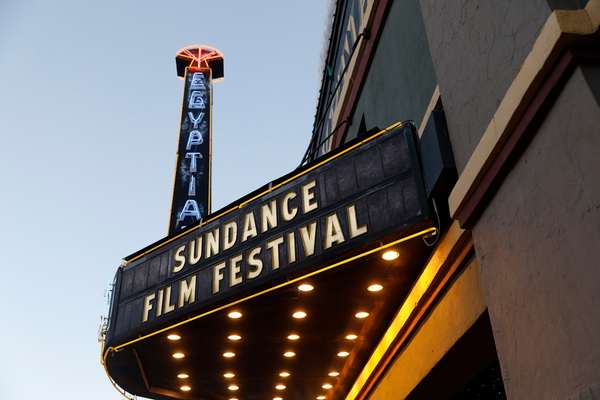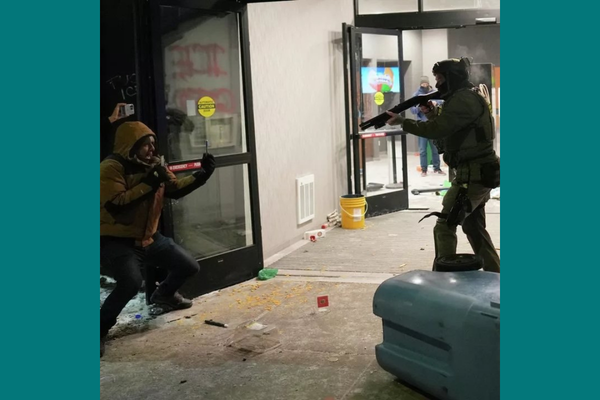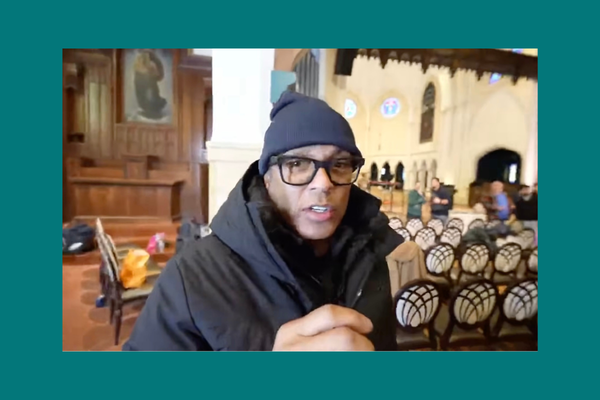The FCC Is Trying to Roll Back 60 Years of Civil Rights Protections
Free Press’ Joseph Torres on the history of how we got here
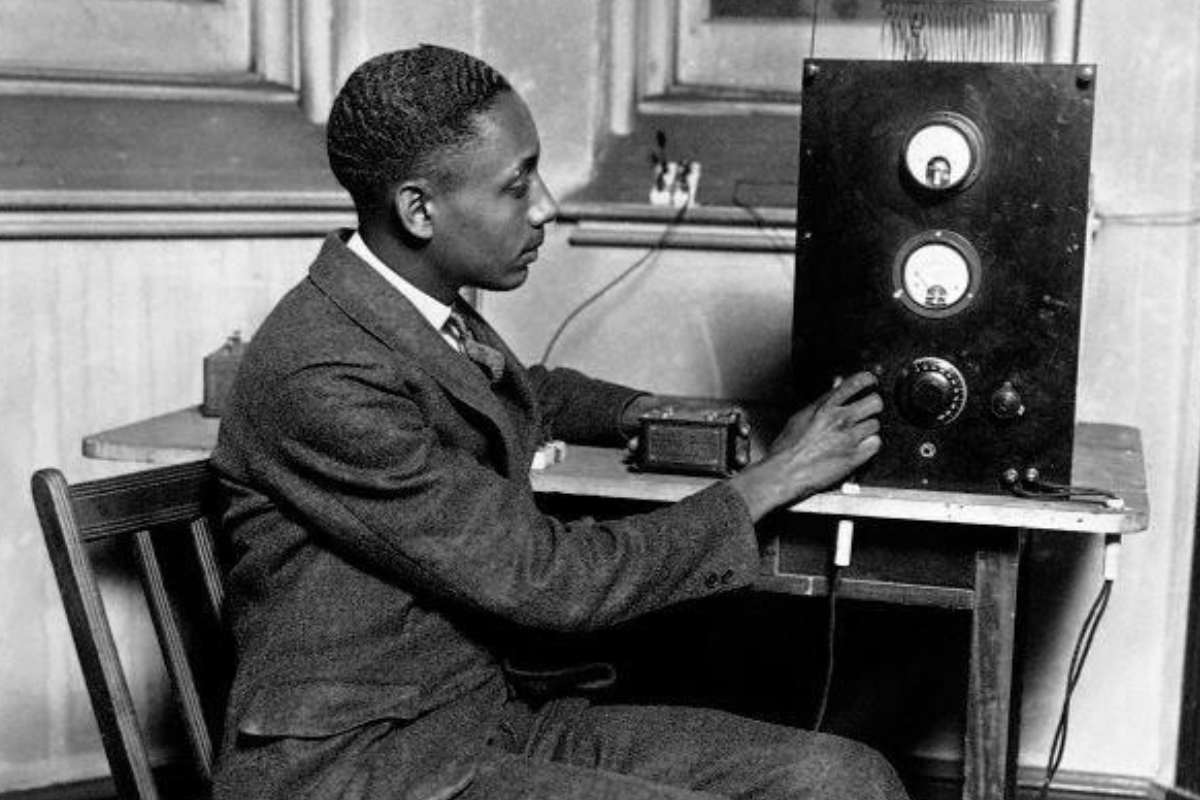
One of the great pleasures of working at Free Press is getting to chop it up with Joseph Torres on a regular basis. Thanks to our friends at the media-watchdog group FAIR, everyone now has a chance to hear Joe’s insights.
FAIR’s Janine Jackson recently interviewed Joe on Counterspin, her nationally syndicated radio show. As Free Press’ senior advisor on reparative policy and programs — and the co-founder of the Media 2070 project — Joe has long explored the intersection of race and the media. As Janine reminds us in her introduction to the interview: “Donald Trump didn’t invent bad, racist, anti-democracy media, or the legal landscape that allows it to thrive. As on other issues, there’s a history to understand and contend with if we’re serious about the goal of growing responsive, inclusive, intelligent news. And that history includes hope, as well as a lot of harm, much like the country itself.”
We’re grateful to FAIR for allowing us to publish this condensed and edited version of the interview transcript here at Pressing Issues. (You can listen to the full interview here.)
Janine Jackson: In 2025, what should we know about the FCC, the ostensible defender of the public in the media world? What should we know about the FCC and Black and Brown people?
Joseph Torres: The current Federal Communications Commission and its chairman, a man named Brendan Carr, are basically a part of Trump’s overall scheme of trying to undo all the gains that have been made for this period of 60-plus years, where equal-protection rights in the 14th Amendment, and other civil and human rights, were extended to contend with the history of racial segregation and subjugation in this country, starting from the very founding — the system that resulted in enslavement of Black folks and the land theft and genocide of Native American communities. The media has always played a critical role in this project of racial hierarchy.
The Federal Communications Commission today is trying, as part of Trump’s agenda, to roll back the very protections that were won over the past 60 years, as a way to consolidate power. The FCC is pushing companies to roll back their commitments to DEI, but really, it’s saying the presence of Black and Brown people within these institutions represents something inherently illegal or unlawfully gained.
This traces back to this recent essay I wrote about how even though the FCC was created in 1934, and its mission is to adopt media policies to serve the public interest, you didn’t have to consider the public-interest obligations of Black folks in 1934. The 14th Amendment that was passed during Reconstruction effectively didn’t exist then because of Plessy v. Ferguson and Jim Crow racism and all the racial violence that was happening during this period. You didn’t have to consider the public-interest obligations for Black folks, because there were no equal-protection rights. The equal protection under law was not being enforced at that time.
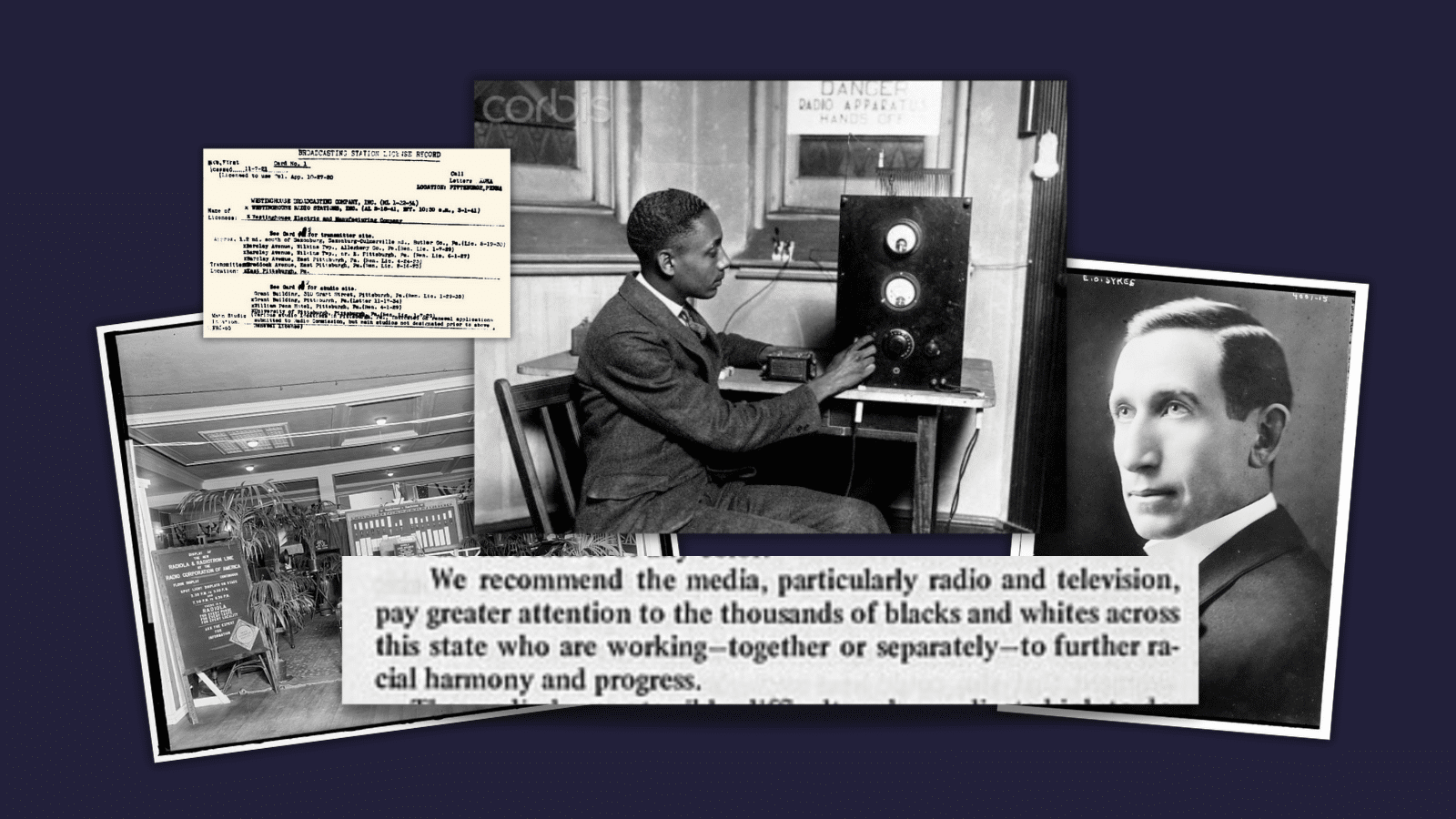
So this is why we created a segregated media system, in a sense. Well, a segregated media system is actually being too kind. We created a white-controlled media system, where white folks controlled all the broadcast stations, where the FCC was actually providing licenses to media companies that supported segregation or profited off of segregation. And we have not contended with that history.
JJ: I think a lot of folks don’t understand. They imagine that there was a time when the media supported the public interest, and then somewhere along the line, that got perverted or confused, and you need to say: What you think of as the “public interest” was not something that included Black and Brown people. So these ideas that you imagine you’re going to “get back to,” where everything was fair, you need to interrogate that understanding. You need to complicate that understanding, because that’s not how it actually worked.
JT: To illustrate that point, the government’s role in the birth of commercial radio really started to accelerate during World War I, when the U.S. Navy was investing heavily in wireless radio technology. The secretary of the Navy was a man named Josephus Daniels. This is under Woodrow Wilson’s administration.
Daniels was a powerful newspaper publisher. And in 1898, he owned The Raleigh News and Observer. And he helped to orchestrate a coup of the multiracial government that was formed following Reconstruction in Wilmington, North Carolina. And he worked hand in hand with the Democratic Party to orchestrate that. He called his paper the “militant voice of white supremacy.” This same man was in charge of overseeing the development of commercial radio under Wilson.
Wilson had a devout white-supremacist father who was an enslaver. Wilson hosted a screening of Birth of a Nation at the White House, and had been president of Princeton University. In his own writings, Wilson talks about, in extremely racist terms, his hatred of Reconstruction, and the idea that Black people would actually be in some sort of position of power. These are the folks who developed commercial radio.
And then Herbert Hoover, who was the president of the United States in 1929, but was the head of the Department of Commerce for most of the 1920s, oversaw the licensing of radio stations. But he also was a person who was using his department to promote racial-housing segregation in the country.
The first chairman of the FCC, Eugene Sykes Jr., previously sat on the Mississippi Supreme Court, appointed by Gov. Theodore Bilbo, who was one of the most notorious white-supremacist governors, and later senators, to serve in any kind of public office. These are the forces who helped to birth commercial radio.
And there were Black folks who were trying to get broadcast stations. There was a lot of interest in the Black community in broadcasting, and becoming broadcast owners. And so the whole point of it is that we have not reconciled the history of how government regulation was just reinforcing the racial apartheid that exists in our country.
It took until the 1960s, to the civil-rights movement, to this famous case in Jackson, Mississippi, WLBT, where civil-rights activists in Jackson, along with the United Church of Christ, were able to successfully challenge the broadcast license for a racist station in Jackson, which opened the door to give U.S. citizens rights to actually challenge FCC policy. We saw Black, Latino, Asian American and Indigenous groups filing license challenges in the late 1960s and 1970s, all over the country, that resulted, really, in the first wave of any kind of significant integration of our broadcast systems.
And that’s the fight we’ve been on for the past 50-plus years, trying to integrate these systems. And this is what the FCC is trying to undo. Again, that integration of these systems hasn’t been sufficient. But at the same time, the hope of ownership dwindles away, the idea that we can own broadcast stations dwindles away, because of the massive consolidation of our media system that starts happening in the 1980s, that continues through the 1996 Telecom Act, and all this massive consolidation that’s still happening now, and even more consolidation that’s going to further entrench the de facto media-apartheid system.
JJ: I want to just underscore what you’re saying: It’s history, it’s not rhetoric. It’s not like, if only Black and Brown folks would’ve, could’ve tried something back in the day. We did. People did, and they were shut down repeatedly, officially. It’s not a question of “folks should have worked through appropriate channels” or “if folks had just built a better mouse trap, then maybe they could have won in the corporate world.” We’re still talking about deliberate racial discrimination. That’s part of the story that we have to tell, and you’re just not going to understand it if you can’t accept that that’s part of it.
JT: In the early 1900s, there were Black radio clubs being formed across the country to teach wireless-communication technology, to be able to build their own radio sets, to listen to broadcasts from other parts of the country.
A Black teenager named Rufus P. Turner, who was a real genius, created the world’s smallest radio set. At only 17 years old, he became the first Black person to operate a radio station, a low-power station to serve the D.C. area in the mid-1920s. But this was before the official birth of commercial broadcasting, and the regulations around commercial broadcasting. And newspapers, and Black newspapers in Washington, D.C., were hailing this young man as a genius.
The point is, we still don’t have the full story of how our communities were really embracing this new technology, because the story of the history of the FCC is often not told from this vantage point. There’s not too many folks who are studying this history from the issue of race and racial subjugation. But understanding that history, and understanding what is happening today — the circumstances are different in essence, but the DNA of how the system was created, we still have not resolved that.
As you know, Janine, it’s hard to create any kind of lasting change with anti-Black narratives, and narratives against other people of color, that criminalize you, dehumanize you. And you see all this overt racism happening now, and just the cruelty of it is because these narratives have continued to work to dehumanize us. And when you dehumanize us, you can actually do anything to us. And so I don’t know how we fight to get out of the situation we are in without addressing the history of anti-Black racism.
Teamwork
Save the date: The next Black Future Newsstand will be happening in Houston from Oct. 30–Nov. 2. Media 2070’s incredible art exhibit — which previously appeared in Harlem, Chicago and Los Angeles — is headed south to explore “the contributions of Afro-Texans in the creation of reparative storytelling.”

Open tabs
Oliver Darcy of Status has the story of YouTube’s “shameless, whiplash-inducing reversal” to carry the right-wing conspiracy network One America News on YouTubeTV. This is happening just a few years after YouTube previously suspended and demonetized the channel for spreading disinformation and propaganda.
What changed? Donald Trump and corporate America’s total abandonment of any pretense of morality.
NPR’s David Folkenflik unpacks the blistering federal-court decision challenging the Trump administration’s illegal dismantling of Voice of America. At every turn, Kari Lake — the former broadcaster turned far-right firebrand — has broken the law and ignored the instructions of Congress.
The kicker
Personal liberties and free markets FTW.
Thousands of DC residents chanting “fuck Jeff Bezos” outside of the P Street Whole Foods
— Hamilton Nolan (@hamiltonnolan.bsky.social) 2025-08-28T21:34:56.666Z
